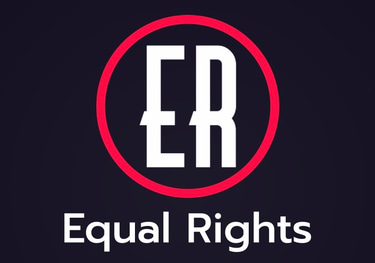Combatting Housing Discrimination:
Rights & Resources for Oregonians
Kylo B
6/6/2024
Combatting Housing Discrimination: Rights & Resources for Oregonians
Housing discrimination remains a significant challenge in Oregon, impacting individuals and communities based on their race, ethnicity, gender, disability status, sexual orientation, and other protected characteristics.
Discriminatory practices not only deny individuals access to safe and affordable housing but also perpetuate systemic inequalities.
This article examines the issue of housing discrimination in Oregon, outlines the legal protections available to residents, and highlights resources for combatting discrimination and promoting fair housing practices.
Understanding Housing Discrimination
Housing discrimination refers to unfair treatment of individuals or groups in the housing market based on their protected characteristics.
Common forms of housing discrimination include:
Refusal to Rent or Sell: Landlords or sellers refusing to rent or sell properties based on an applicant's race, religion, national origin, disability, or other protected status.
Unequal Terms & Conditions: Imposing different rental terms, conditions, or requirements on tenants based on protected characteristics.
Steering: Directing individuals towards or away from certain neighborhoods based on their protected status.
Harassment & Retaliation: Subjecting tenants to harassment or retaliation for asserting their fair housing rights.
Fair Housing Laws in Oregon
Oregon has robust fair housing laws that protect individuals from discrimination in housing.
Key federal laws include the Fair Housing Act (Title VIII of the Civil Rights Act of 1968) and the Americans with Disabilities Act (ADA). Additionally, Oregon state law prohibits discrimination based on additional characteristics such as source of income (including Section 8 vouchers), marital status, and sexual orientation.
Protections and Rights for Oregonians
Residents of Oregon have important rights when it comes to fair housing:
Equal Opportunity in Housing: It is illegal to discriminate in the sale, rental, or financing of housing based on protected characteristics.
Reasonable Accommodations & Modifications: Landlords must provide reasonable accommodations or modifications for individuals with disabilities to ensure equal access to housing.
Protection from Retaliation: Individuals who assert their fair housing rights are protected from retaliation or harassment.
Source of Income Protections: Discrimination based on a tenant's source of income, including Section 8 vouchers, is prohibited.
Resources for Combatting Housing Discrimination
Oregon Bureau of Labor & Industries (BOLI): BOLI enforces Oregon's fair housing laws and provides resources for individuals facing discrimination.
Fair Housing Council of Oregon: This nonprofit organization offers education, outreach, and advocacy to promote fair housing practices and assist victims of discrimination.
Legal Aid Services: Low-income individuals can access legal aid services for assistance with housing discrimination complaints and legal proceedings.
HUD Office of Fair Housing & Equal Opportunity: The U.S. Department of Housing and Urban Development (HUD) provides information, resources, and assistance related to fair housing laws.
Taking Action Against Discrimination
If you believe you have experienced housing discrimination in Oregon, take the following steps:
Document the Discrimination: Keep records of all communications and incidents related to the discrimination.
File a Complaint: Contact BOLI, HUD, or a local fair housing organization to file a discrimination complaint.
Seek Legal Assistance: Consult with a housing attorney or legal aid service for guidance on your rights and options.
Combatting housing discrimination requires a collective effort from policymakers, housing providers, advocacy organizations, and community members.
By raising awareness, enforcing fair housing laws, and providing resources for affected individuals, Oregon can move closer to ensuring equitable access to housing for all residents.
Upholding fair housing principles not only promotes justice and equality but also strengthens communities and fosters inclusive and vibrant neighborhoods across the state.
